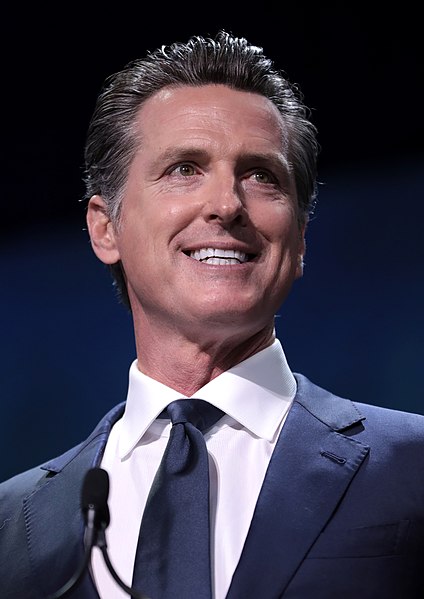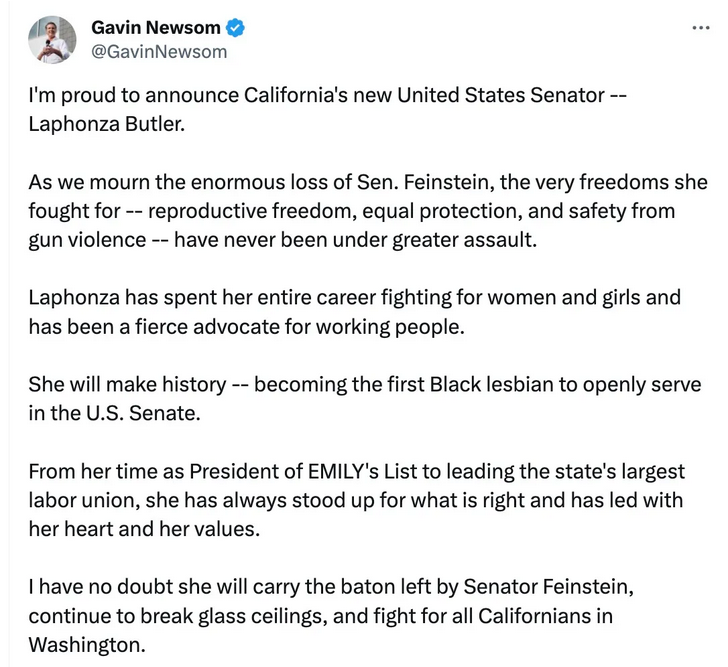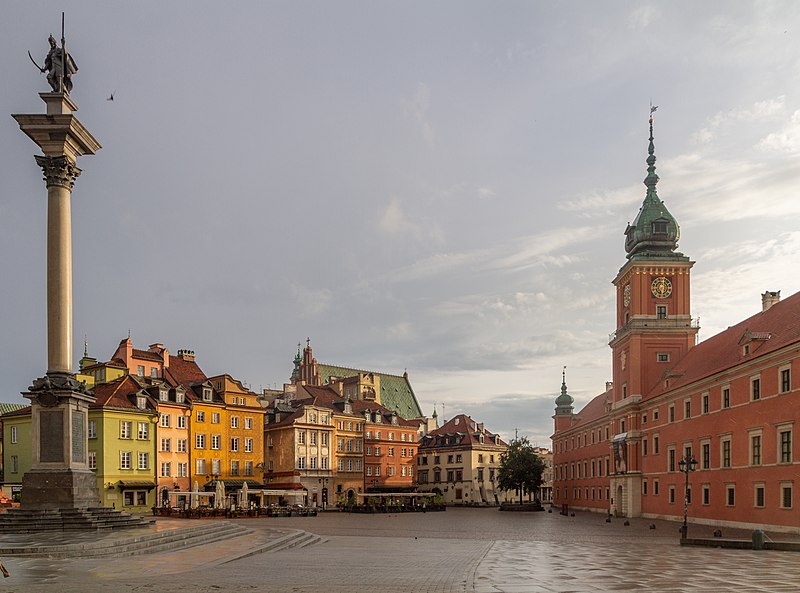Just to take one small example, The X-Files was hitting its stride in 1994, and I was smack dab in the target demo: Nerdy college dude. And yet, all the show’s basic assumptions rubbed me wrong. Mulder was obviously supposed to be cool, but as I saw it, the show went out of its way to make him look like a loser — no girlfriend, no family, not even a pet, spanks it to porn (an at least somewhat risqué thing to imply on network tv, even at that late date). More than that, though, was the show’s attitude towards the government. You’re asking me to believe that the government — Bill Clinton’s government — is competent enough to keep an alien conspiracy under wraps?
I wasn’t in any way political back then. If forced to pick a side, I’d have been reflexively liberal, like all college kids are. I didn’t know the first thing about what was going on out in the world, let alone in the corridors of power in Washington, but even I found that pretty farfetched.
More importantly, the zeitgeist I saw was rapidly changing. X Files creator Chris Carter was born in 1956 and grew up in sunny SoCal (his wiki entry makes sure to give us his favorite surfing stance), so he more than most probably wrestled with the dilemma of how to bring Flower Power into Ronald Reagan’s 1980s. Hence the weird disconnect of the early 1990s, when Bill Clinton got his groovy, greasy, chicken-fried hippie self into the White House: The same people who, in their own college days, had nothing but hatred for the CIA and their domestic Mini-Me, the FBI, were all of a sudden kinda sorta coming around on the idea that The Feds are our friends — since, you know, the Feds are now us. It’s probably not a coincidence that Agent Mulder, FBI, was the star of The X-Files.
Explains a lot about “Gen X”, don’t it? When every single authority figure in your life, from the President on down, tells you to Fight the Power, the only way out of the clown show is to be, you know, like, whateverrr about everything — learned helplessness, 1994 version.
But smoked-out, flannel-clad, and apathetic is no way to go through life, and so we turned into a generation of suck-ups and toadies. Oh, the lunatic Marxists in the Teachers’ Unions want to encourage kids to “transition” in elementary school. Dude … you know, like, whateverrr. The college kids of 1994 are the middle managers, the Deep Staters, the lever-pullers of 2021. It’s working out about as well as you might’ve expected. You don’t need Agent Mulder to solve this mystery.
Severian, “1994”, Rotten Chestnuts, 2021-04-15.
October 20, 2023
QotD: The Gen-X-Files
October 19, 2023
The evisceration of Bill C-69 (aka the Impact Assessment Act)
The decision of the Supreme Court of Canada to strike down large parts of the federal Impact Assessment Act caught a lot of people by surprise. The court hasn’t made much of a habit of rejecting the federal government’s ever-increasing encroachments on provincial jurisdiction, so this ruling is a bit of a black swan. It’d be nice if the Supremes were going to be more vigilant in future, but that’s unlikely. Colby Cosh explains why this is a “remarkable political moment”:
To hear the Liberals talk now, you would think that the Supreme Court’s 7–2 rebuke of C-69 was a mere bump in the road. Steven Guilbeault, the federal environment minister, appeared on CTV’s Question Period to reassure the public that the law can be “redefined” to accomplish its grandiose intentions; it’s just a matter of “course-correct(ing)” the text a smidgen in order to “comply with the spirit” of the ruling.
Here’s an idea for the minister: maybe just go ahead and comply with the ruling, period?
Comply with the spirit, he says. Having taken the trouble to decrypt the ruling, which is not exactly a masterpiece of lucid clarity, I wonder at the environment minister’s priorities. Rather than appearing on television with a bunch of happy talk, he ought to have been mopping up the seas of blood left by the court’s evisceration of his Impact Assessment Act.
In essence, the Liberals created an apparatus whereby a federal panel would perform environmental and social assessments of major infrastructure projects based on the possibility that they might “cause adverse effects within federal jurisdiction”.
The underlying pretext is that the federal government’s powers are sometimes engaged by the creation of mines, wells, roads and other such projects — even when they are confined within one province’s borders — because they can conceivably affect federal matters such as fisheries, migratory birds, Aboriginal welfare, treaty obligations and other “national concerns”.
This is true as far as it goes, but the court majority’s finding was that this constitutional pretext for creating a federal assessment scheme isn’t actually reflected in the scheme itself. The Liberals, asserting a right to investigate hypothetical infringements on the federal sphere of power, created a law that essentially allows them to veto anything that a province might want to permit.
As the law is written, the initial assessment-agency decision to “designate” a project for assessment can be based on just about anything, including “any comments received … from the public” and “any other factor the Agency considers relevant”. In the final decision-making phase, which is to be based on the “public interest”, specific federal heads of power are also cast aside: whoever makes the final call at the cabinet level is to evaluate a project for “sustainability”, for example.
October 18, 2023
October 16, 2023
In ?praise? of the “spoils system”
Glenn Reynolds on the way the US government’s structure changed from the “spoils system” of the early republic to the modern “professional” civil service of today:

Andrew Jackson sitting on a hog on top of a tomb with the inscription “To the victors belong the spoils”.
Political cartoon by Thomas Nast, Harper’s Weekly, 28 April, 1877.
America’s institutions need structural reform. We need it in academia, we need it in the corporate world, and we need it in government. In all of these fields, the structures, incentives, and institutions that have grown up over time have been destructive, and need to be fundamentally transformed.
I’ll be writing about all of these things down the line, but for now let’s start with government. Though you don’t hear a lot about it on the right, the left is all bent out of shape over the prospect that a Republican administration elected in 2024 might partially deconstruct the existing protected civil service. I, on the other hand, am excited about that prospect, and only wish they’d go farther.
Prior to the adoption of the Pendleton Act in 1883, government employment operated according to the “spoils system”, which meant that hiring in the executive branch was controlled by the Executive. When a new administration came in, everyone’s job was up for grabs, at least potentially. This “rotation in office” had several advantages, which were widely appreciated at the time, and propounded by presidents from Jefferson to Jackson to Lincoln.
Jackson argued that one serving in government for too long would inevitably lose sight of the public interest and come to use office for personal gain. He also maintained that government was or could be made simple enough for men of ordinary ability and experience, so ‘more is lost by the long continuance of men in office than is generally to be gained by their experience’.1
Contrary to popular belief, though, the arrival of a new president didn’t mean that everyone left. Even Andrew Jackson, upon taking office, replaced only about 10% of the federal work force with his own people. Every president understood the value of continuity, and hiring new people is hard work.
But under the spoils system, the fact that the president could replace anyone mean that everyone worked for him. And that meant both that everyone was responsible to the president, and that the president was responsible for everyone in the government, and everything the government did. This is consistent with the Constitution’s vesting clause, which provides that “The executive Power shall be vested in a President of the United States of America.” If the executive branch does it, it’s an executive power, and if it’s an executive power it should be controlled by the president.
Contrast this to a “professional” civil service, in which the president does neither the hiring nor the firing, except with regard to a comparatively small number of senior officials. The civil service doesn’t think of itself as working for the president, really, and will happily drag its feet when it doesn’t like the president’s priorities. And when the bureaucracy misbehaves, or fails to perform, the president can, at least to a degree, blame its recalcitrance for the trouble or lack of results that occurs.
Congress is also let off the hook, yet simultaneously weirdly empowered. Congress can blame “the bureaucracy” for bad things, even when those things result from laws that Congress has passed. Then it can turn around and “help” constituents by intervening with the bureaucracy it has rendered dysfunctional, earning gratitude that may be deserved in a narrow sense, but not in terms of the big picture.
Under a spoils system, on the other hand, nobody gets off the hook. If the bureaucracy misbehaves, the president can fire the misbehavers. If Congress is unhappy with what bureaucrats do, they can demand that the president fire them, and make an election issue out of it if they want.
So why did we wind up with a civil service? As is typical, the fantasy of a neutral, efficient, expert civil service was laid next to the reality of a messy functioning government. But, as is also typical, the fantasy in practice turned out to be considerably less appealing than as proposed.
1. Robert Maranto, Thinking the Unthinkable in Public Administration: A Case for Spoils in the Federal Bureaucracy, Administration & Society, January 1998, 623,625.
QotD: Differentials of “information velocity” in a feudal society
[News of the wider world travels very slowly from the Royal court to the outskirts, but] information velocity within the sticks […] is very high. Nobody cares much who this “Richard II” cat was, or knows anything about ol’ Whatzisface – Henry Something-or-other – who might’ve replaced him, but everyone knows when the local knight of the shire dies, and everything about his successor, because that matters. So, too, is information velocity high at court – the lords who backed Henry Bolingbroke over Richard II did so because Richard’s incompetence had their asses in a sling. They were the ones who had to depose a king for incompetence, without admitting, even for a second, that
a) competence is a criterion of legitimacy, and
b) someone other than the king is qualified to judge a king’s competence.Because admitting either, of course, opens the door to deposing the new guy on the same grounds, so unless you want civil war every time a king annoys one of his powerful magnates, you’d best find a way to square that circle …
… which they did, but not completely successfully, because within two generations they were back to deposing kings for incompetence. Turns out that’s a hard habit to break, especially when said kings are as incompetent as Henry VI always was, and Edward IV became. Only the fact that the eventual winner of the Wars of the Roses, Henry VII, was as competent as he was as ruthless kept the whole cycle from repeating.
Severian, “Inertia and Incompetence”, Founding Questions, 2020-12-25.
October 12, 2023
Canada, “a country with short arms and long pockets”
In the National Post, John Ivison recounts Canada’s continuing inability to live up to expectations internationally, especially militarily:
On the eve of Russia’s invasion of Ukraine, Mark Norman, the former vice-chief of defence, made a prediction that sounded overblown at the time.
“I really think the Americans are going to start ignoring us because they don’t think we are credible or reliable. They are not even putting pressure on us anymore,” he said in a January 2022 National Post interview, based on his conversations with contacts in Washington.
It turns out he was absolutely right.
Since then, leaked Pentagon documents have confirmed that sense, indicating that the U.S. believes “widespread defence shortfalls have hindered Canada’s capabilities, while straining partner relationships and alliance contributions”.
Canada left little room for doubt about its diminished capabilities when it took a pass on NATO’s largest-ever air exercise last summer, because its jets and pilots were involved in “modernization activities”. That absence left the impression that this country might not be able to show up in certain circumstances.
Even before the unfolding tragedy in the Middle East, America was letting it be known that it felt overstretched and needed regional allies to share the burden.
When President Joe Biden visited Ottawa in March, he asked Justin Trudeau to lead a mission to Haiti, which had descended into mob rule. Since the Liberals were elected on a peacekeeping ticket in 2015, it was a logical request. However, Trudeau demurred, presumably on the grounds that Canada’s security forces were stretched too thin by operations in Latvia and fighting wildfires at home. The upshot is that Kenya is set to send 1,000 security officers to the beleaguered island nation.
The recent news that Canada now plans to trim its defence budget by nearly $1 billion — a total of $17 billion over 20 years, if savings are recurring — has reinforced the image of a country with short arms and long pockets.
Against that background, it was no surprise that on Monday Biden hosted a call with the leaders of France, Germany, Italy and the U.K. to discuss the crisis in the Middle East — and didn’t include Canada.
A statement by the G7 minus Canada and Japan (which has a negligible Jewish population) was issued saying that the five countries would ensure Israel is able to defend itself.
Over at The Line, Matt Gurney discovered that the federal government was actively trying to hide the fact that Canadians in Israel were not able to access Canadian embassy services by pretending that the word “operational” meant “open and functional”:
On Sunday evening (hours after we published our dispatch), I received a reply from GAC. This was the reply:
Since the beginning of this crisis, Canadian officials have been working around the clock to support Canadians. The missions in Tel Aviv and Ramallah remained operational through the weekend and will continue to be. Our missions will open on Monday October 9th, unless security conditions do not allow for it. We will be assessing the security situation daily, in coordination with our allies.
Okay! That seemed fair. But not having been born yesterday, and being in a profession where people try to spin me all the time, I noticed something immediately. The distinction GAC was drawing between “operational” and “open” stood out to me. I replied at once seeking clarification, and heard nothing back. Not even an acknowledgement.
This word choice mattered. The government publicly used the “operational” messaging. Members of the government repeated it. This was what they were telling the Canadian people: all is well, ignore those nasty media people and members of the opposition. Of course the embassies were “operational”!
See that tweet? The one pasted above? I checked out who was retweeting it. Lots of people did! And that included a bunch of Liberal MPs, a bunch of Canadian diplomats, members of the media, and what I’ll politely refer to as a group of “usual suspects” I recognize from online as being proxies for the Liberal government’s messaging (or at least really devoted True Believer Liberal partisans).
On Monday morning, having heard nothing back about what “operational” meant as opposed to “open”, I asked for a specific clarification in the terminology. What was “operational” vs. “open”? I also asked for specifics on what services were available locally from Canadian diplomatic missions in Israel over the weekend in real time, and how that would change when the embassy “opened” on Monday. I asked about the staffing level at the embassy on the weekend, and how that would compare to a normal workday, and also to a normal weekend.
Rather than answer a simple question, our government would much rather obfuscate and prevaricate as a matter of policy. That, by itself, tells you everything you need to know about both our political leaders and the civil service organizations they control.
October 9, 2023
“Wildly popular public sentiment is disorder, and has to be restrained”
Chris Bray outlines one of the many (many) ways that elected officials are insulating themselves from the voters who elected them to ensure that they only hear what they want to hear from the public … and as little of it as they can get away with:
Wildly popular public sentiment is disorder, and has to be restrained. So here, let’s start with something vital and interesting, and then work our way through the process a local government is using to kill it. As always, the point about this local story isn’t just the local story, since versions of this are happening all over the country (and with federal assistance).
Early last year, an angry Virginia mom spoke to the Prince William County school board, blasting mask mandates in schools. Her fiery three-minute speech went viral, until YouTube, which now seems to mostly exist to prevent discussion, killed it:
It’s back, in a less-watched version that YouTube hasn’t gotten around to cancelling yet:
Here’s a version on Rumble, if you’d rather watch it there, but Substack doesn’t embed Rumble video.
The second thing to notice in that video, after you notice the clarity and strength of Merianne Jensen’s comments, is the response: an enormous audience of parents shouting and cheering in support as another parent sharply criticizes school district policy. The public is present for a government meeting, and the public is engaged. Citizens are participating, enthusiastically and in large numbers, which is supposed to be a thing we regard as an ideal.
[…]
Public comment is limited to one hour, full stop, no matter how many people wish to speak, and no matter how urgent a controversy before the board might be. The public — the entire public — gets an hour. But, second, that hour is alloted through an application process in which people who wish to speak to the school board fill out an online form that a clerk then evaluates and processes, deciding whether or not a request to speak will be granted. Detailed contact information is required before the school district will consider your request to speak, and national organizations and other outsiders have no right to speak at all, since public comment is limited to verified residents of the county. The form is a masterpiece of passive-aggressive nudging, communicating with great clarity that your desire to offer public comment is merely being tolerated. Read this carefully, because in a few minutes we’re going to get to the pernicious way this system is now being gamed:
This form does NOT confirm your request to be added to the list of speakers for Citizen Comment Time. You will receive a separate email indicating the status of your request. As a reminder, speakers are signed up to speak on a first-come, first-served basis.
Thank you again for your interest.
Citizens may sign up to be placed on the list of speakers for the citizen comment period starting at 8:00 a.m. on the Saturday immediately preceding the School Board meeting at which the citizen wishes to speak. Requests received prior to 8:00 a.m. on the Saturday immediately preceding the School Board meeting will not be honored. Speakers will be signed up on a first-come, first-served basis, ending at noon on the day of the meeting. The sign-up list will close once the number of total speakers who have signed up reaches twenty and there will be no sign-up thereafter, nor at the meeting.
That last sentence will become important: twenty commenters are signed up in advance, in the order in which they apply, and then the list for public comment is closed, the end. Can you see where this is going?
Before we get there, I’ll just note that a more detailed board policy on comments, available here, adds that the board chairman can end a public comment session, and ask school district security to remove speakers, if a commenter wanders into “inappropriate topics” or a tone the board regards as uncivil. You can feel the spontaneity and openness being drained.
October 5, 2023
QotD: The Wuhan Coronavirus pandemic was a “propaganda masterpiece”
Professor Mark Crispin Miller teaches media studies at New York University (NYU) and is an expert in propaganda. Dr. Miller says just about everything concerning Covid was simply an elaborate exercise in propaganda. Dr. Miller explains, “The propaganda dimension is crucial to our understanding of what went down. Some people like to say this is a result of a number of ‘blunders’ by the health authorities and the government. ‘Blunders’. No, these are not ‘blunders’. When everything they recommend is deleterious and destructive of people’s health … When they suppress the truth about life saving remedies in furtherance of this so-called ‘vaccination program’, and when the so-called ‘vaccines’ have abysmal records for safety and effectiveness and those records are all hidden, we cannot reasonably conclude this is all the result of ‘blunders’. I have called the period from 2020 through the present a ‘Propaganda Masterpiece’. … Covid and every aspect of that whole crisis was engineered with extreme brilliance and sophistication of a propaganda operation. This was followed by the George Floyd moment. This served a number of purposes quite in line with the Covid crisis, which is to shut down society, cripple the economy and destroy the middle class … Also, another important aspect of this whole propaganda epic has been to divide the American people … No matter what side of the struggle we are on, what matters is the struggle took place at all. It is deeply divisive …”
Dr. Miller goes on to say, “I know a lot about propaganda, and this is unprecedented in the history of mass persuasion. There has never been anything like this because this is global. This has never happened before. We had Stalin’s crimes … We had Hitler’s aggression and the Holocaust. We had 911 and the ‘War on Terror’. None of those actually begin to compare to what we have now because what we have now is planetary. It’s worldwide.”
Dr. Miller does not call the CV19 bioweapon/vax a genocide. He says it is really a global democide. Meaning everyone and anyone is being murdered with the CV19 bioweapon/vax. Dr. Miller says, “My Substack is called ‘Died Suddenly’. I started it in February of 2022 when I noticed many, many people were dying suddenly for no given reason. In the history of obituaries, certainly in the United States, that is unprecedented. Obituaries always tell you why somebody died. Even if the person is very, very old, you have a cause of death. Now, all kinds of people are dropping dead for no reason and often very young … We do a weekly overview with as many pictures of these people as possible. This is the point. There are many statistical claims of the numbers of people who are dying … But as Stalin said, ‘One death is a tragedy, a million deaths is a statistic’. This is brutal, cynical wisdom, and he was absolutely right. If you read 1 million people starved in Ukraine, you say that’s too bad. If you look at page after page after page of people’s faces and names with the names of their survivors, it’s not so easy to shrug off.”
Greg Hunter, “CV19 – A Propaganda Masterpiece – Mark Crispin Miller”, USAWatchdog, 2023-06-10.
October 4, 2023
“John Adams said that a republican constitutional structure didn’t guarantee republican virtue in government”
Chris Bray reflects on the 17th amendment to the US Constitution in light of the appointment of California’s new senator:

California Governor Gavin Newsom speaking at the 2019 California Democratic Party State Convention in San Francisco, California on 1 June, 2019.
Photo by Gage Skidmore via Wikimedia Commons.
… the Senate was supposed to be the national storehouse of wisdom, restraint, discipline, and worldly experience. You may already be seeing that we wandered away from this idea at some point.
The 17th Amendment, ratified in 1913, gave voters the power to directly elect senators, reducing the influence of state legislatures and opening the upper house to mass media popularity contests. The 16th Amendment — “Congress shall have power to lay and collect taxes on incomes” — was ratified the same year, a one-two punch of Progressive centralization of power.
The democratizing and centralizing character of the 17th Amendment gave us a parade of powerful idiots that culminated in John Fetterman, passing through Mazie Hirono and the professional Ted Baxter impersonator Sheldon Whitehouse, so it looks like a failure. But we’ve just run an experiment, thanks to Dianne Feinstein’s white-knuckled grip on her personal status, and the results are … interesting.
The California legislature, in its infinite wisdom, has given the governor the unilateral authority to appoint Feinstein’s replacement, so we’re not quite seeing the exact duplicate of the original constitutional design for the Senate. But we’re seeing something like it: a senator chosen by something other than the popular vote, elevated to the Senate after selection by a longtime state official who has deep personal familiarity with the pool of people who might do the job. You know, a statesman.
Newsom’s choice for Feinstein’s seat is almost miraculous in its awfulness, an appointment distinguished by cravenness and sleazy insiderism. Naming a new senator from a state with 39 million people in it, he has chosen the Maryland resident Laphonza Butler — who has never held any elected office anywhere.
Butler is a career activist and party hack, an SEIU official who went on to run the abortion PAC EMILYs List. She is, in other words, one of the people whose function in life has been to raise money for the Democratic Party. She’s an ATM, and she’s never been anything else. She’s being appointed to the United States Senate without having ever convinced any voters anywhere to elect her to anything, and she’s rising to the upper house of the national legislature with no experience of any kind in any relevant field. Advice and consent on foreign policy? Confirmation of judicial nominees? Well, she has experience raising money for candidates, so. It’s a straight payoff: generate cash for the party for twenty years, get a free high-status ride in the Senate.
Here’s how Newsom explains the choice:
She’s a black lesbian who gives us money, end of statement. California’s idiot politicians find the choice exciting.
September 30, 2023
With the international situation so stable and peaceful, Canada intends to cut military spending by $1 billion or so
I didn’t think Justin Trudeau could possibly come up with another stunt to outrage our allies, but I stand corrected:
Canada’s top general revealed on Thursday that the armed forces is facing nearly $1 billion in cuts by the Liberal government, saying that military leaders are struggling to understand the change as the forces deal with more pressures in an unstable world.
Speaking to MPs Thursday during a meeting of the defence committee, Chief of Defence Staff Wayne Eyre was asked about proposals to cut $15 billion across the government, which the Liberals promised to do in the spring budget.
Eyre said the Defence Department’s piece of that cut will hurt.
“There’s no way that you can take almost $1 billion out of the defence budget and not have an impact, so this is something that we’re wrestling with now,” he told MPs.
Eyre said he had been discussing the cuts with military leaders and they’re struggling to understand the change.
“Our people see the degrading declining security situation around the world and so trying to explain this to them is very difficult,” he said.
Conservative Defence critic MP James Bezan said he hopes the military doesn’t weaken its readiness with these cuts.
“I sure hope we’re not going to hear stories that we can’t afford to put the fuel in the tanks and train guys in armour, we’re not going to put diesel in the ships and not have the Navy go out there and training, we can’t afford to do maintenance on our tanks,” he said. “We have to make sure we continue to move forward in training and operations.”
Deputy Minister of Defence Bill Matthews said the department is looking at ways to ensure the cuts don’t hurt the ability of the military to fight.
Not to be too cynical, but the Canadian Armed Forces are already well below the funding level we promised our allies we’d achieve, and it impacts pretty much everything the CAF needs to do. It’s quite possible that a budget cut of that size will end meaningful participation in NATO land operations in Estonia, Latvia, Poland, and other front-line allied nations.
September 26, 2023
Postwar Warsaw became beautiful, but postwar Coventry became a modernist eyesore
Ed West’s Wrong Side of History remembers how the devastation of Warsaw during World War 2 was replaced by as true a copy as the Poles could manage, while Coventry — a by-word for urban destruction in Britain — became a plaything in the hands of urban planners:

Stare Miasto w Warszawie po wojnie (Old Town in Warsaw after the war)
Polish Press Agency via Wikimedia Commons.
Fifteen months after its Jewish ghetto rose up in a last ditch attempt to avoid annihilation, the people of the city carried out one final act of defiance against Nazi occupation in August 1944.
The Soviets, having helped to start the war in 1939 with the fourth partition of Poland, deliberately halted their advance and refused to help the city in its torment. Without Russian cooperation, the western allies could do little more than an airlift of weapons and supplies, which was doomed to failure.
The Polish Army and resistance fought bravely – some 20,000 Germans were killed or wounded – but at huge cost. As many as 200,000 Poles, most civilians, were killed in the battle and over 80% of the city destroyed – worse destruction than Hiroshima or Nagasaki. And so the Nazis had carried out their plan to erase the Polish capital — yet this was something the Poles refused to accept, even after 1944
Today the Old Town is as beautiful as it ever was, and visitors from around the world come to walk its streets – witnesses to perhaps the most remarkable ever story of urban rebirth.
With the city a pile of rubble and corpses, the post-war communist authorities considered moving the capital elsewhere, and some suggested that the remains of Warsaw be left as a memorial to war, but the civic leaders insisted otherwise – the city would rise again
Warsaw was fought over, bombed, shelled, invaded and twice was the epicentre of brutal urban guerilla warfare, leaving the city in literal ruins. Coventry, on the other hand, wasn’t bombed by the Luftwaffe until 1940 — but the damage had already began at the hands of the urban planners:

Broadgate in Coventry city centre following the Coventry Blitz of 14/15 November 1940. The burnt out shell of the Owen Owen department store (which had only opened in 1937) overlooks a scene of devastation.
War Office photo via Wikimedia Commons.
The attack was devastating, to the local people and the national psyche, and local historian W.G. Hoskins wrote that “For English people, at least, the word Coventry has had a special sound ever since that night”. Yet Coventry also became a byword for how to not to rebuild a city – indeed the city authorities even saw the Blitz as an opportunity to remake the city in their own image.
Coventry forms a chapter in Gavin Stamp’s Britain’s Lost Cities, a remarkable – if depressing – coffee table book illustrating what was done to our urban centres. Stamp wrote:
British propaganda was quick to exploit this catastrophe to emphasise German ruthlessness and barbarism and to make Coventry into a symbol of British resilience. Photographs of the ruins of the ancient Cathedral were published around the world, and it was insisted that it would rise again, just as the city itself would be replanned and rebuilt, better than before.
But the story of the destruction of Coventry is not so simple or straightforward. … severe as the damage was, a large number of ancient buildings survived the war – only to be destroyed in the cause of replanning the city. But what is most shocking is that the finest streets of old Coventry, filled with picturesque half-timbered houses, had been swept away before the outbreak of war – destroyed not by the Luftwaffe but by the City Engineer. Even without the second world war, old Coventry would probably have been planned out of existence anyway.
In one respect, Coventry had been ready for the attacks … the vision of “Coventry of Tomorrow” was exhibited in May 1940 – before the bombing started. [City engineer] Gibson later recalled that “we used to watch from the roof to see which buildings were blazing and then dash downstairs to check how much easier it would be to put our plans into action”.
The Society for the Protection of Ancient Buildings had estimated that 120 timber houses had survived the war … two thirds of these would disappear over the next few years as the city engineer pressed forward with his plans … A few buildings were retained, but removed from their original sites and moved to Spon Street as a sanitised and inauthentic historic quarter.
Today, whatever integrity the post-war building ever had has been undermined by subsequent undistinguished alterations and replacements. Coventry has been more transformed in the 20th century than any other city in Britain, both in terms of its buildings and street pattern. The three medieval spires may still stand, but otherwise the appearance of England’s Nuremberg can only be appreciated in old photographs.
In fact, the destruction had begun before the war. In order to make the city easier for drivers, the west side had been knocked down in the 1930s, the area around Chapel St and Fleet St replaced by Corporation St in 1929-1931. After the war it would become a shopping centre.
Old buildings by Holy Trinity Church were destroyed in 1936-7, and that same year Butcher Row and the Bull Ring were similarly pulled down, the Lord Mayor calling the former “a blot in the city”.
Indeed, the city architect Donald Gibson hailed the Blitz as “a blessing in disguise. The Jerries cleared out the core of the city, a chaotic mess, and now we can start anew.” He said later that “We used to watch from the roof to see which buildings were blazing and then dash downstairs to check how much easier it would be to put our plans into action”.
Gibson’s plan became city council policy in February 1941, with a new civic centre and a shopping precinct inside a ring road. The City Engineer Ernest Ford wanted to preserve some old buildings, including the timber Ford’s Hospital, which had survived the Blitz. Gibson said it was an “unnecessary problem” and in the way of a new straight road.
QotD: Bad kings, mad kings, and bad, mad kings
An incompetent king doesn’t invalidate the very notion of monarchy, as monarchs are men and men are fallible. A bad, mad king (or a minor child) would surely find himself sidelined, or suffering an unfortunate hunting accident, or in extreme cases deposed, but the process of replacing X with Y on the throne didn’t invalidate monarchy per se. Deposing a king for incompetence was a very dangerous maneuver for lots of reasons, but it could be, and was, recast as a kind of “mandate of heaven” thing. Though they of course didn’t say that, the notion wasn’t a particularly tough sell in the age of Avignon and Antipopes.
But notice the implied question here: Sold to whom?
That’s where the idea of “information velocity” comes in. Exaggerating only a little for effect: Most subjects of most monarchs in the Medieval period had only the vaguest idea of who the king even was. Yeah, sure, theoretically you know that your lord’s lord’s lord owes homage to some guy called “Edward II” – that whole “feudal pyramid” thing – but as to who he might be, who cares? You’ll never lay eyes on the guy, except maybe as a face on a coin … and when will you ever even see one of those? So when you finally hear, weeks or months or years after the fact, that “Richard II” has been deposed, well … vive le roi, I guess. Meet the new boss, same as the old boss, and meanwhile life goes on the same as it ever did.
Information velocity out to the sticks, in other words, was very low. By the time you find out what the great and the good are up to, it’s already over. And, of course, the reverse – so long as the taxes come in on time, on the rare occasions they’re levied (imagine that!), the king doesn’t much care what his vassal’s vassals’ vassals’ vassals are up to.
Severian, “Inertia and Incompetence”, Founding Questions, 2020-12-25.
September 23, 2023
“Canada is, as a whole, a naive, spoiled country that stands a pretty good chance of getting punched in the face by reality”
In The Line, Matt Gurney praises both the delivery and the content of a recent report by the Business Council of Canada urging Canadian governments to pay a lot more attention to economic security issues that seem to be almost universally neglected in favour of mediagenic gestures and battlespace prep for the next election.

Business Council of Canada report – https://thebusinesscouncil.ca/report/economic-security-is-national-security/
But as I was reading the report, there was this nagging thought in the back of my mind. Why is the Business Council of Canada trying to impress upon the government (and the country at large) the importance of economic security? Why do we need a report from top business leaders to remind our political leadership that poor countries aren’t generally safe and peaceful ones, and that there are countries out there that would wish us harm and that we need to be on guard against? Like, shouldn’t we know that already? Because none of this stuff is revolutionary. It’s all extremely basic stuff that any mature country should just sort of intuitively grasp. Right?
And that’s when the shoulder-slumping realization lands on you like a ton of bricks. We should, but in this country, we don’t. We just don’t. Because, well ….
Uh oh.
It seems to me that a country shouldn’t need a report to impress upon key civilian leadership that economic prosperity is the cornerstone of all security, or that, on the flip side, security is a prerequisite for prosperity. Toronto is a fair bit rougher than it used to be these days — join us at our event next month! — but when I leave the house to run an errand, I’m reasonably confident I’m not going to be abducted by a band of roving pirates prowling the leafy streets of Leaside. When I head up north for the weekend, it doesn’t occur to me that there’ll be a checkpoint along the route, looking to shake me down or carry off my children into slavery. In the mornings, when I lurch out of bed with a groan that gets louder with each passing year, I expect that the light switch will indeed result in light and that the faucet in the bathroom will provide clean water. I don’t have to worry about whether the water treatment plant has been bombed or the power lines shelled.
Many of my Canadian readers may find the above absurd or, at least, a bit of hyperbole. But that’s the point. As I have written many times before, almost everything we do in this country, and almost our entire self-identity as Canadians, accepts internal security and safety from military attack as an ironclad given, just by default. That makes sense: that has been the norm for us, for a long time. It seems absurd precisely because how distant it seems from our normal.
But it isn’t the norm in any historical sense much beyond a human lifetime or two or three, even in Canada. And more to the point, as the voice-over guys in the commercials say, past performance may not be indicative of future results.
We are not owed prosperity in perpetuity. We are not guaranteed security by virtue of our niceness. These are precious things that require more than just good luck — and good luck, thank God, is something Canada still does seem to have. In addition to luck, though, we need realistic understandings of our strengths, weaknesses and the threats we face. We need political leadership that is mature and aware enough to understand the difference between political interest and national interest, and that is seized enough with these issues to devote the necessary resources to building up and preserving our security, from all reasonably foreseeable threats. That includes not just investments of money and people, but also simply intellectual bandwidth and emotional toil. We have to think, hard, about things that aren’t nice to think about, and have robust, effective institutions and a critical mass of people with the necessary combination of mindset, academic and professional training and lived experience to be effective at foreseeing, heading off and, when necessary, managing crises that threaten our safety and prosperity. We need a supportive bureaucracy that is efficient and task-focused and doesn’t get in the way of all this vital work.
Does any of this sound like Canada to you?!
Does it sound like the leader of any of our governments, or any of the people who’ll replace those leaders? Does it sound like any of our institutions except the ones specifically tasked with security and defence? You know, the ones we habitually starve so we can spend a few extra bucks and a bit more political capital on something a bit more pleasing to the average voter? Does it sound like the sort of thing smart, well-read and educated Canadians spare a single solitary moment thinking about as they go about their day to day lives?
Of course not. No one does, and our politics reflect this. These just aren’t issues of concern in Canada outside of the military, the intelligence agencies and a few fellow journalists and academics I could probably recount here in their totality by their first names.
September 22, 2023
Political psychosis and the never-ending “narrative”
Chris Bray points out several instances of the legacy media continuing to push “the narrative” despite any inconvenient facts that cast doubt on the official story:
Every day is opposite day. Every day is a bucket of fake. The narrative is the narrative; once it’s established, nothing penetrates it. It rattles on down the road, impervious to inputs, convinced of its own truth without regard to events outside the shell. Psychologists have a term for this.
So Politico warns this week that faith in vaccines is falling, and anti-vaxxer narratives are “on the rise.” Sample paragraph, this one describing Health Secretary Xavier Becerra:
The summer of 2023, a claim made in June and credulously repeated in the bottom half of September: If you take Covid vaccines, you can’t get sick, but if you don’t take Covid vaccines, you die. Government leaders who don’t push the 7th and 8th doses of the mRNA injections “choose not to take care of their people”.
[…]
But the narrative rolls on, unperturbed. If you’re dying of Covid, it’s because you hesitated to get your 7,369th dose, anti-vaxxer! Maybe you should have stopped being such a Nazi! In the news media, it’s 2021 forever, and the virtuous science-lovers are rolling up their sleeves to rebuke the science-hating morons, who will not survive the … okay, well, who will not survive the next … okay, well, YOU’LL PROBABLY DIE AT SOME POINT because you didn’t get it. You’re facing a winter of severe illness and death by 2054, at the latest. No amount of evidence will force the storytellers to stop telling this story. It’s the story, so they tell it. The Politico thing ends by quoting Peter Hotez, by the way, as you knew it would.
Similarly, The Atlantic warns now that Donald Trump was a time bomb who kept nearly going off for four years, and only the courage of General Mark Milley kept him under control. Look at the premise at the top of the piece: Disobeying, resisting, and undermining the President of the United States, a military officer protected the Constitution.
How well does the story parse the constitutional issues at stake? This well:
The military decided to have an abortion travel policy, and to fund it. A senator is now interfering in military policy and the unilateral executive appropriations of the Department of Defense, a sign of the ongoing constitutional crisis that began with Trump. Typically, you see, in our constitutional order, the military does whatever it wants, and spends money on its own authority however it feels like spending it, but Tuberville is engaging in the “unprecedented” act of suggesting that Congress should decide how to appropriate federal funds and regulate the armed forces, which means that he hates the Constitution. Article I, Section 8 would like a word, in this obviously extremist description of the authority of Congress:
To raise and support Armies, but no Appropriation of Money to that Use shall be for a longer Term than two Years;
To provide and maintain a Navy;
To make Rules for the Government and Regulation of the land and naval Forces;
And so on. Why is Tommy Tuberville being such a Nazi?
“The Online News Act … has been an utter disaster”
Michael Geist on the ongoing disaster the federal government created with the Online News Act:
Prime Minister Justin Trudeau was asked this week about concerns with the implementation of Bill C-18, to which he responded that other countries are quietly backing Canada in its battle against tech companies. I posted a reality check tweet noting that Meta is not returning to news in Canada, the law’s regulation stipulating a 4% fee on revenues is not found anywhere else, and that Bill C-18 has emerged as a model for what not to do. With the House of Commons back in session, it is worth providing a more fulsome reality check on where things stand with the Online News Act. While the government is still talking tough, the law has been an utter disaster, leading to millions in lost revenues with cancelled deals, reduced traffic for Canadian media sites, declining investment in media in Canada, and few options to salvage this mess.
For those that took the summer off, Bill C-18 received royal assent in late June. Over the past three months:
1. Meta has blocked all news links in Canada and cancelled existing deals with Canadian news outlets. The blocked links covers both Canadian and foreign news in light of the broad scope of the law. While the Australian experience lasted a few days, the blocking in Canada has now gone on for weeks and there is little reason to believe that the company will reverse its position to comply with the law by simply not linking to news.
2. The government responded to the blocked news links by stopping to advertise on Facebook and Instagram and encouraging others to do the same. The boycott has had little effect as the Liberal party is still advertising on the platforms with a new round of ads this week, the Prime Minister is still posting on the platforms, and reports indicate that Facebook has not experienced a reduction in user activity. In fact, reports suggest that the experience on Facebook without news has improved. Further, a Competition Act complaint has not sparked any action.
3. Google responded to Bill C-18 by advising it too would remove news links from its services before the law takes effect in December. That position enabled it to wait for the government to release draft regulations that provide further detail on the application of the law and the standards for obtaining an exemption from the mandatory bargaining process that can lead to final offer arbitration overseen by the CRTC.
Several more items of concern at the link.

















